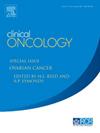为癌症儿童开发配对全基因组测序服务。
IF 3.2
3区 医学
Q2 ONCOLOGY
引用次数: 0
摘要
背景:配对(肿瘤和种系)全基因组测序(PWGS)在癌症诊断和管理中的独特之处在于,它不仅能够发现致癌驱动因素和潜在的治疗靶点,还能识别潜在的癌症易感综合征,这对患者及其家庭具有重大影响。本文的主要目的是与其他希望建立类似服务的中心分享我们的经验,并为未来的定量/定性研究奠定基础:方法:本文通过对已确认有潜在癌症倾向的儿童进行审计来进一步证实:审计结果表明,该计划迄今为止取得了巨大成功,100% 被确认有癌症易感综合征风险的家庭都获得了临床遗传学转介服务,100% 有风险的一级亲属都获得了预测咨询和检测服务。需要改进的方面包括对生育选择的讨论,因为九个家庭中只有六个家庭(67%)进行了有记录的讨论:采纳审计建议将改善我们的服务,分享我们的经验将有望鼓励更多儿科肿瘤服务机构将 PWGS 纳入常规临床护理,减少不公平的机会。还需要进一步开展工作,评估长期癌症风险的降低情况,并确定PWGS对儿童和家庭的社会心理影响。本文章由计算机程序翻译,如有差异,请以英文原文为准。
Developing a Paired Whole Genome Sequencing Service for Children With Cancer
Background
The uniqueness of paired (tumor and germline) whole genome sequencing (PWGS) in cancer diagnosis and management lies in not just its ability to uncover oncogenic drivers and potential treatment targets but also on the identification of underlying cancer predisposition syndromes, which has significant implications for the patient and their family.
Aims
This is a descriptive article highlighting the processes taken by our team to incorporate PWGS into routine National Health Service (NHS) clinical care for children with cancer. The main aim of this article is to share our experience with other centers that may wish to set up similar services and set the stage for future quantitative/qualitative research.
Methods
This article is further supported by an audit focusing on children in whom an underlying cancer predisposition was confirmed.
Results
The audit highlights the success of the program to date, with 100% of families identified as being at risk of a cancer predisposition syndrome being offered referral to clinical genetics and 100% of at-risk first-degree relatives being offered predictive counseling and testing. Areas requiring improvement included discussion of reproductive options as only six out of nine families (67%) had a documented discussion.
Conclusions
Incorporation of the audit recommendations will improve our service, and sharing of our experience will hopefully encourage more pediatric oncology services to introduce PWGS into routine clinical care and reduce inequity of access. Further work is required to assess the long-term cancer risk reduction and establish the psychosocial impact of PWGS for the child and family.
求助全文
通过发布文献求助,成功后即可免费获取论文全文。
去求助
来源期刊

Clinical oncology
医学-肿瘤学
CiteScore
5.20
自引率
8.80%
发文量
332
审稿时长
40 days
期刊介绍:
Clinical Oncology is an International cancer journal covering all aspects of the clinical management of cancer patients, reflecting a multidisciplinary approach to therapy. Papers, editorials and reviews are published on all types of malignant disease embracing, pathology, diagnosis and treatment, including radiotherapy, chemotherapy, surgery, combined modality treatment and palliative care. Research and review papers covering epidemiology, radiobiology, radiation physics, tumour biology, and immunology are also published, together with letters to the editor, case reports and book reviews.
 求助内容:
求助内容: 应助结果提醒方式:
应助结果提醒方式:


